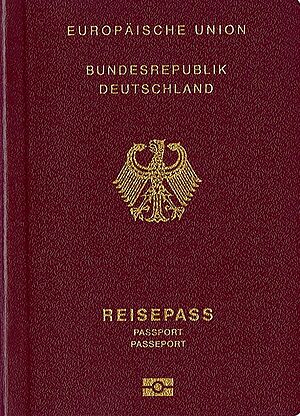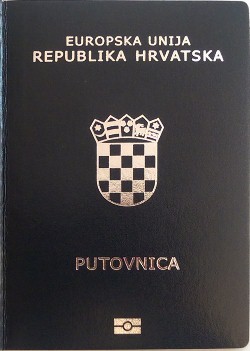European Union citizenship facts for kids
Being a European Union citizen means you are also a citizen of one of the EU countries. This special status started in 1992 with the Maastricht Treaty. EU citizenship is extra; it does not replace your country's citizenship. It gives you cool rights, freedoms, and legal protections under EU law.
As an EU citizen, you can move freely, live, and work anywhere in the EU. You can also trade goods, services, and money across EU borders easily. There are no limits on moving money or extra fees. You can even vote and run in local elections in the EU country where you live, even if it's not your home country. Plus, you can vote in EU elections and join a European Citizens' Initiative (ECI).
If you are in a country outside the EU and your home country doesn't have an embassy there, other EU countries' embassies can help you. EU citizens can also talk directly to the European Parliament, the European Ombudsman, and other EU agencies. You can do this in any of the EU official languages, as long as your issue is something they handle.
EU citizens are protected by EU laws, like the Charter of Fundamental Rights. These laws cover things like protecting your personal information, helping victims of crime, and ensuring equal pay. They also protect you from unfair treatment at work because of your religion, beliefs, sexual orientation, or age. You can even contact the European Ombudsman directly if you have a problem.
Contents
How EU Citizenship Started
The idea of EU citizenship has a long history. People thought about a "European form of citizenship" way back in the 1960s. But the main rights, like being able to live and work anywhere in EU countries, started even earlier. They came from the rules about free movement in the Treaty of Paris in 1952. This treaty created the European Coal and Steel Community. It allowed workers in those industries to move freely, which was an early step towards EU citizenship.
The Maastricht Treaty in 1992 officially created EU citizenship. Before that, treaties mostly helped people who were working or doing business. For example, the 1951 Treaty of Paris and the 1957 Treaty of Rome allowed workers and services to move freely. Over time, these rules grew to include more people. The European Court of Justice (ECJ) helped expand these rights even before formal EU citizenship existed. They said that EU laws were very important and applied directly to people.
At first, these rights were for certain workers. Then they grew to include all workers, and even people not working, like retirees and students. This was about making sure people could move and settle easily. For example, in 1968, a rule allowed workers and their families to live anywhere in the European Economic Community (EEC). This led to new rights, like getting a minimum wage or help with public transport. The ECJ said that moving for work was not just for the economy, but also to help workers improve their lives.
Before EU citizenship was official, the ECJ even expanded the idea of a "worker" to include family members, students, and tourists. This meant that almost anyone from an EU country moving to another EU country had rights, as long as they weren't a huge burden on the host country.
After the Maastricht Treaty, the Court slowly started using the idea of EU citizenship more directly to decide cases. This showed how important EU citizenship had become.
Your Rights as an EU Citizen
The rights of EU citizens are listed in two main documents: the Treaty on the Functioning of the European Union and the Charter of Fundamental Rights. A big benefit of being an EU citizen is the freedom to move around. This freedom also applies to citizens of European Economic Area countries and Switzerland.
The Charter of Fundamental Rights
The Charter of Fundamental Rights of the European Union lists specific political, social, and economic rights for EU citizens. Chapter Five of the Charter focuses on your rights as an EU citizen. These rights include:
- The right to vote and run in elections for the European Parliament.
- The right to vote and run in local elections in the EU country where you live.
- The right to good administration, meaning EU institutions should treat you fairly.
- The right to see EU government documents.
- The right to send a petition (a formal request) to the European Parliament.
- Freedom to move and live anywhere in the EU.
- Help from other EU countries' embassies if your own country doesn't have one where you are.
Treaty on the Functioning of the European Union
The Treaty on the Functioning of the European Union says that citizens are "directly represented" in the European Parliament. It also says you can "participate in the democratic life of the Union." Here are some specific rights:
- Accessing EU documents: You can see documents from the EU government (Article 15).
- Freedom from unfair treatment: You should not be treated unfairly because of your nationality (Article 18).
- Right to not be discriminated against: The EU can act to stop unfair treatment based on sex, race, religion, disability, age, or sexual orientation (Article 19).
- Right to free movement and residence: You can move and live freely anywhere in the EU. You can also work in most jobs, even in national public services (Article 21).
- Voting in European elections: You have the right to vote and run in European Parliament elections in any EU country (Article 22).
- Voting and running in local elections: You can vote and run in local elections in an EU country that is not your own. You have the same rights as citizens of that country (Article 22).
- Right to consular protection: If you are in a country outside the EU and your home country doesn't have an embassy there, other EU countries' embassies can help you (Article 23). This is because not every EU country has an embassy everywhere.
- Petitioning Parliament and the Ombudsman: You can send a petition to the European Parliament. You can also contact the European Ombudsman if you think an EU institution has done something wrong (Article 24).
- Language rights: You can write to EU institutions in one of the official languages and get a reply in that same language (Article 24).
Freedom to Move and Live
Article 21 (1) of the Treaty on the Functioning of the European Union says:
Every citizen of the Union shall have the right to move and reside freely within the territory of the Member States, subject to the limitations and conditions laid down in this Treaty and by the measures adopted to give it effect.
The European Court of Justice (ECJ) has said that EU citizenship is meant to be the most important status for citizens of EU countries. This means you have a direct right to live in another EU country.
Sometimes, there are rules about how long you can stay if you are not working. For example, if you want to stay longer than three months, you might need health insurance and enough money. This is to make sure you don't become a big burden on the host country's social system.
Freedom to Work
Article 45 of the Treaty on the Functioning of the European Union states:
* Freedom of movement for workers shall be secured within the Union.
- Such freedom of movement shall entail the abolition of any discrimination based on nationality between workers of the Member States as regards employment, remuneration and other conditions of work and employment.
This means you should not be treated differently in terms of jobs or pay just because you are from another EU country. Some jobs in public service, like judges or police, might be reserved for citizens of that country. But generally, you can work in most jobs across the EU.
Sometimes, new EU countries have temporary rules. Their citizens might have limited access to job markets in other EU countries for a few years after joining. But these restrictions usually end after a maximum of seven years.
Becoming an EU Citizen
There isn't one single EU rule for becoming an EU citizen. This is because EU citizenship is an addition to your national citizenship. You become an EU citizen automatically when you become a citizen of an EU country. Each EU country has its own rules for who can become its citizen.
Article 20 (1) of the Treaty on the Functioning of the European Union says:
"Citizenship of the Union is hereby established. Every person holding the nationality of a Member State shall be a citizen of the Union. Citizenship of the Union shall be additional to and not replace national citizenship."
So, if you are a citizen of, say, France, you are also an EU citizen. But it's up to France to decide who becomes a French citizen. This means rules for getting or losing citizenship can be very different across EU countries.
Special Cases for Overseas Territories
Sometimes, a country might not give EU citizenship to all its citizens, especially those in overseas territories. For example, before 2002, some British citizens from former colonies were not considered EU citizens. After 2002, most British overseas territories citizens gained full British citizenship, which also gave them EU citizenship rights. However, residents of the Crown Dependencies (like Jersey or the Isle of Man) were EU citizens but had limited free movement rights unless they had other connections to the UK.
Another example is the Faroe Islands, which are part of Denmark. People there are Danish citizens but are not EU citizens because of a special agreement. However, people in Greenland, another Danish territory, are EU citizens even though Greenland left the EU.
Losing EU Citizenship (Brexit Example)
Normally, if you lose your national citizenship, you also lose your EU citizenship. But what happens if a whole country leaves the EU? This was a big question when the United Kingdom left the EU (Brexit).
Both the EU and the UK government said that British citizens would lose their EU citizenship. This meant they would lose their automatic right to live and work in the EU. And EU citizens would lose their automatic right to stay in the UK. To help with this, an agreement was made for British citizens already living in the EU (and vice versa) to keep their rights. The only exception was Irish citizens, who can still live and work in the UK under a special agreement called the Common Travel Area.
Some people argued that British citizens should keep their EU citizenship even after Brexit. They said that EU citizenship is a fundamental status that should not be taken away just because a country leaves. However, in 2022, the European Court of Justice decided that all British nationals did lose their EU citizenship after the UK left.
Some ideas, like "associate citizenship," were suggested to let British citizens keep some EU rights, like visa-free travel. But the British government did not agree to this.
EU Citizenship for People with European Ancestry
Many people around the world have ancestors who came from Europe. Some EU countries allow people to claim citizenship based on their family history, even if their ancestors left many generations ago. This means that millions of people outside Europe could potentially become EU citizens.
If these people can prove their family connection and get citizenship from an EU country, they would then have the freedom to live anywhere in the EU.
See also
 In Spanish: Ciudadanía europea para niños
In Spanish: Ciudadanía europea para niños
- Charter of Fundamental Rights of the European Union
- European Citizens' Initiative
- Four Freedoms (European Union)
- Passport of the European Union
- Visa requirements for the European Union citizens
Images for kids





